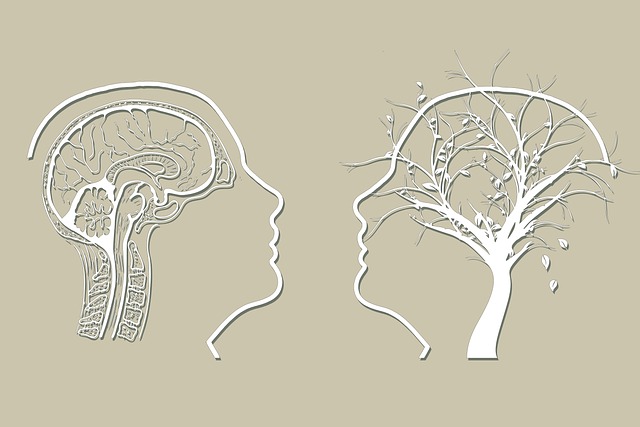Longmont Cancer Issues Therapy (LCIT) emphasizes the development of effective coping skills as a crucial component of both therapy and recovery. By integrating evidence-based strategies like mindfulness, CBT, and progressive muscle relaxation, LCIT helps patients manage stress, overcome challenges, and maintain emotional well-being. This holistic approach prioritizes cultural sensitivity, self-care routines, and resilience-building techniques, ultimately enhancing the quality of life for cancer patients throughout their journey.
In navigating the challenges of cancer, developing robust coping skills is paramount for patients in Longmont. This comprehensive guide delves into the essential elements of fostering resilience through an integrated approach, tailored specifically for those facing cancer diagnoses. From understanding coping mechanisms to identifying personal resources and employing evidence-based strategies, we explore holistic healing methods offered by Longmont Cancer Issues Therapy. By adopting these practices, individuals can enhance their ability to manage stress and embrace a more balanced life during and after their cancer journey.
- Understanding Coping Skills: An Overview for Longmont Cancer Patients
- Identifying Personal Resources: Building Resilience in the Face of Cancer
- Evidence-Based Strategies for Effective Coping and Stress Management
- Longmont Cancer Issues Therapy: Integrating Coping Skills for Holistic Healing
Understanding Coping Skills: An Overview for Longmont Cancer Patients

In the face of Longmont cancer issues, developing effective coping skills is a vital aspect of therapy and recovery. Coping refers to the ways individuals manage stress, overcome challenges, and maintain emotional well-being during difficult times. For cancer patients, this can involve navigating not only physical symptoms but also the emotional turmoil that often accompanies a cancer diagnosis. Understanding and cultivating healthy coping mechanisms are essential for managing anxiety, depression, and other mental health concerns that may arise.
Longmont’s Mental Health Education Programs Design often emphasize the importance of cultural sensitivity in mental healthcare practice. This means recognizing and respecting the unique experiences, beliefs, and perspectives of each patient. When patients feel heard and understood, they are better equipped to engage in Self-Care Routine Development for Better Mental Health, a process that involves identifying personal stress management strategies, setting boundaries, and prioritizing self-compassion. By integrating these practices, Longmont cancer patients can enhance their resilience and overall quality of life during and after therapy.
Identifying Personal Resources: Building Resilience in the Face of Cancer

In the face of a cancer diagnosis, developing coping skills becomes an essential aspect of one’s journey. Longmont Cancer Issues Therapy emphasizes the power of personal resources in building resilience. This process involves recognizing and harnessing inner strength, a key component in managing the challenges that come with a cancer fight. By understanding unique strengths and abilities, individuals can navigate their treatment journey with renewed confidence.
Identifying personal resources is an act of self-discovery, encouraging patients to explore their capabilities for stress management. This proactive approach, coupled with therapy, aids in preventing burnout, particularly among healthcare providers supporting cancer patients. Effective stress management techniques, when incorporated into daily routines, foster a sense of control and promote emotional well-being, ultimately contributing to better coping skills during treatment and beyond.
Evidence-Based Strategies for Effective Coping and Stress Management

Coping skills development is a vital component of holistic care, especially for individuals navigating challenging health conditions like those facing Longmont Cancer Issues. Evidence-based strategies offer effective tools for managing stress and preventing burnout, crucial aspects of cancer therapy. Techniques such as mindfulness meditation, cognitive-behavioral therapy (CBT), and progressive muscle relaxation have been extensively researched and proven to enhance coping mechanisms. These strategies empower individuals to manage symptoms, improve their quality of life, and foster resilience during treatment.
In the context of Longmont Cancer Issues Therapy, integrating these evidence-based practices requires collaboration between healthcare providers and patients. Stress management workshops organized by support groups or medical facilities can provide a safe space for learning and practicing coping skills. Additionally, cultural competency training for healthcare providers ensures sensitivity to diverse patient needs, facilitating better engagement and tailored care, especially in addressing Burnout Prevention among those offering support.
Longmont Cancer Issues Therapy: Integrating Coping Skills for Holistic Healing

Longmont Cancer Issues Therapy (LCIT) offers a unique and holistic approach to healing, focusing on more than just physical treatment. This therapy integrates coping skills development as a crucial component, recognizing that managing cancer involves addressing emotional, mental, and psychological aspects alongside medical care. By incorporating stress reduction methods and self-esteem improvement techniques, LCIT empowers individuals navigating cancer to cope effectively with the challenges they face.
Through targeted interventions, LCIT guides patients in developing resilient coping strategies tailored to their specific needs. These skills not only help manage anxiety and fear but also enhance overall well-being during and after treatment. By fostering self-esteem improvement, the therapy enables individuals to maintain a positive sense of self, which is vital for navigating the complexities of cancer care and embracing a path towards holistic healing.
In conclusion, coping skills development is a vital component of holistic healing for Longmont cancer patients. By understanding coping mechanisms, identifying personal resources, and employing evidence-based strategies, individuals can navigate their journey with greater resilience. The Longmont Cancer Issues Therapy program offers a comprehensive approach to integrating these coping skills, fostering a sense of empowerment and well-being amidst the challenges of cancer.











